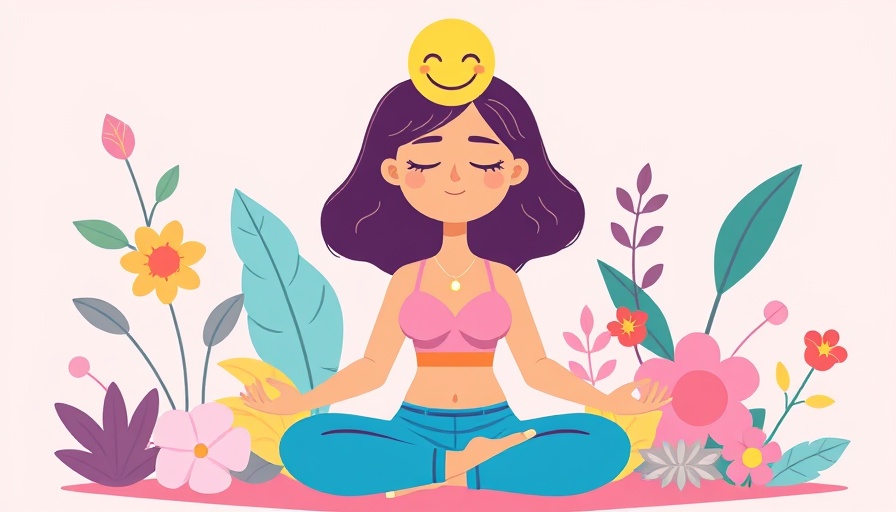
Embracing the Power of Yoga and Meditation for Mental Health
In a world that often feels overwhelming, the practices of yoga and meditation have emerged as popular solutions for enhancing mental health. However, as science writer Misty Pratt discusses in her book All in Her Head: How Gender Bias Harms Women’s Mental Health, these methods are not a “one size fits all” solution. Let's unpack the transformational potential of these ancient practices while acknowledging the pitfalls that may arise.
Understanding the Basics of Yoga and Meditation
Many begin their journey into wellness through yoga, primarily focusing on the physical aspect known as asana, which includes poses like downward dog and cat-cow. However, as the roots of yoga extend beyond mere physical exercise, they offer guiding principles for a healthier lifestyle. Similarly, meditation techniques can vary from simply focusing on breath to engaging in mindfulness practices rooted in Buddhist traditions.
The Importance of Tailoring Practices to Individual Needs
It is vital to recognize that the effectiveness of yoga and meditation can depend greatly on personal preferences and needs. What works wonderfully for one person may not resonate at all with another. Hence, it may be beneficial to explore various styles or forms of practice—be it vinyasa flow for the physically invigorating or restorative yoga for gentle relaxation—until you find your fit.
Research Insights: Yoga and Meditation as Effective Remedies
Crescendoing research suggests that both yoga and meditation can play significant roles in mental health enhancement. A study led by Jon Kabat-Zinn, known for introducing mindfulness-based stress reduction programs, highlights that participants often report lower levels of anxiety and depression after engaging in these practices. Many practitioners notice mood improvements, which can become apparent over time rather than instantaneously.
Potential Challenges: Recognizing the Pitfalls
As with any therapeutic approach, it's crucial to also address potential pitfalls. Some individuals may find the emphasis on yoga and meditation to be overly simplistic when faced with deeper mental health issues like trauma or severe anxiety. Recommendations to simply “breathe deeply” may feel dismissive and ignore the complexity of one’s emotional health. Thus, combining these practices with professional guidance from a counselor or therapist can offer a more comprehensive approach to well-being.
Integrating Professional Support for Holistic Mental Health
Yoga and meditation can significantly enhance overall happiness and emotional health, but they should complement—not replace—traditional mental health services. For residents in Gig Harbor looking for support, seeking a qualified counselor or therapist can be incredibly beneficial. Navigating anxiety, depression, or relationship challenges is complex, and having someone knowledgeable to guide you through it can be a game changer.
Actionable Steps for Your Journey
As you consider integrating yoga and meditation into your routine, start small. Try online classes, local workshops, or even guided sessions through telehealth platforms. Document your experiences, assessing how each session affects your mood and mental clarity. Remember, the journey to well-being is personal, and there’s no wrong way to begin.
Conclusion: Take the Next Step Towards Wellness
Investing time in yoga and meditation can be transformative, but it’s essential to approach these practices with realistic expectations. Embrace the exploration of what works for you while remaining aware of the importance of professional support. If you’re in Gig Harbor and seeking guidance in your mental wellness journey, don't hesitate to reach out to a therapist or counselor today. Your well-being matters!
 Add Row
Add Row  Add
Add 




 Add Row
Add Row  Add
Add 

Write A Comment